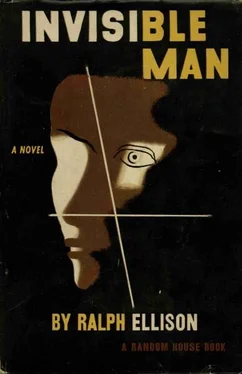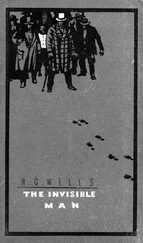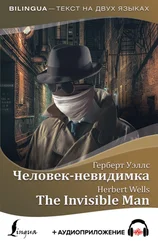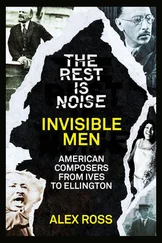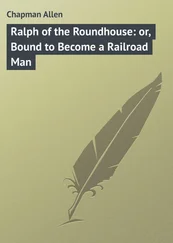Ralph Ellison - Invisible man
Здесь есть возможность читать онлайн «Ralph Ellison - Invisible man» весь текст электронной книги совершенно бесплатно (целиком полную версию без сокращений). В некоторых случаях можно слушать аудио, скачать через торрент в формате fb2 и присутствует краткое содержание. Год выпуска: 1995, ISBN: 1995, Издательство: Vintage Books, Жанр: Классическая проза, на английском языке. Описание произведения, (предисловие) а так же отзывы посетителей доступны на портале библиотеки ЛибКат.
- Название:Invisible man
- Автор:
- Издательство:Vintage Books
- Жанр:
- Год:1995
- ISBN:9780679732761
- Рейтинг книги:4 / 5. Голосов: 1
-
Избранное:Добавить в избранное
- Отзывы:
-
Ваша оценка:
- 80
- 1
- 2
- 3
- 4
- 5
Invisible man: краткое содержание, описание и аннотация
Предлагаем к чтению аннотацию, описание, краткое содержание или предисловие (зависит от того, что написал сам автор книги «Invisible man»). Если вы не нашли необходимую информацию о книге — напишите в комментариях, мы постараемся отыскать её.
The Waste Land,
Invisible man — читать онлайн бесплатно полную книгу (весь текст) целиком
Ниже представлен текст книги, разбитый по страницам. Система сохранения места последней прочитанной страницы, позволяет с удобством читать онлайн бесплатно книгу «Invisible man», без необходимости каждый раз заново искать на чём Вы остановились. Поставьте закладку, и сможете в любой момент перейти на страницу, на которой закончили чтение.
Интервал:
Закладка:
But you don't even know my name, I thought, wondering what it was all about.
"... I suppose it is difficult for you to understand how this concerns me. But as you develop you must remember that I am dependent upon you to learn my fate. Through you and your fellow students I become, let us say, three hundred teachers, seven hundred trained mechanics, eight hundred skilled farmers, and so on. That way I can observe in terms of living personalities to what extent my money, my time and my hopes have been fruitfully invested. I also construct a living memorial to my daughter. Understand? I can see the fruits produced by the land that your great Founder has transformed from barren clay to fertile soil."
His voice ceased and I saw the strands of pale blue smoke drifting across the mirror and heard the electric lighter snap back on its cable into place behind the back of the seat.
"I think I understand you better, now, sir," I said.
"Very good, my boy."
"Shall I continue in this direction, sir?"
"By all means," he said, looking out at the countryside. "I've never seen this section before. It's new territory for me."
Half-consciously I followed the white line as I drove, thinking about what he had said. Then as we took a hill we were swept by a wave of scorching air and it was as though we were approaching a desert. It almost took my breath away and I leaned over and switched on the fan, hearing its sudden whirr.
"Thank you," he said as a slight breeze filled the car.
We were passing a collection of shacks and log cabins now, bleached white and warped by the weather. Sun-tortured shingles lay on the roofs like decks of water-soaked cards spread out to dry. The houses consisted of two square rooms joined together by a common floor and roof with a porch in between. As we passed we could look through to the fields beyond. I stopped the car at his excited command in front of a house set off from the rest.
"Is that a log cabin?"
It was an old cabin with its chinks filled with chalk-white clay, with bright new shingles patching its roof. Suddenly I was sorry that I had blundered down this road. I recognized the place as soon as I saw the group of children in stiff new overalls who played near a rickety fence.
"Yes, sir. It is a log cabin," I said.
It was the cabin of Jim Trueblood, a sharecropper who had brought disgrace upon the black community. Several months before he had caused quite a bit of outrage up at the school, and now his name was never mentioned above a whisper. Even before that he had seldom come near the campus but had been well liked as a hard worker who took good care of his family's needs, and as one who told the old stories with a sense of humor and a magic that made them come alive. He was also a good tenor singer, and sometimes when special white guests visited the school he was brought up along with the members of a country quartet to sing what the officials called "their primitive spirituals" when we assembled in the chapel on Sunday evenings. We were embarrassed by the earthy harmonies they sang, but since the visitors were awed we dared not laugh at the crude, high, plaintively animal sounds Jim Trueblood made as he led the quartet. That had all passed now with his disgrace, and what on the part of the school officials had been an attitude of contempt blunted by tolerance, had now become a contempt sharpened by hate. I didn't understand in those pre-invisible days that their hate, and mine too, was charged with fear. How all of us at the college hated the black-belt people, the "peasants," during those days! We were trying to lift them up and they, like Trueblood, did everything it seemed to pull us down.
"It appears quite old," Mr. Norton said, looking across the bare, hard stretch of yard where two women dressed in new blue-and-white checked ginghams were washing clothes in an iron pot. The pot was soot-black and the feeble flames that licked its sides showed pale pink and bordered with black, like flames in mourning. Both women moved with the weary, full-fronted motions of far-gone pregnancy.
"It is, sir," I said. "That one and the other two like it were built during slavery times."
"You don't say! I would never have believed that they were so enduring. Since slavery times!"
"That's true, sir. And the white family that owned the land when it was a big plantation still lives in town."
"Yes," he said, "I know that many of the old families still survive. And individuals too, the human stock goes on, even though it degenerates. But these cabinsl" He seemed surprised and confounded.
"Do you suppose those women know anything about the age and history of the place? The older one looks as though she might."
"I doubt it, sir. They -- they don't seem very bright."
"Bright?" he said, removing his cigar. "You mean that they wouldn't talk with me?" he asked suspiciously.
"Yes, sir. That's it."
"Why not?"
I didn't want to explain. It made me feel ashamed, but he sensed that I knew something and pressed me.
"It's not very nice, sir. But I don't think those women would talk to us."
"We can explain that we're from the school. Surely they'll talk then. You may tell them who I am."
"Yes, sir," I said, "but they hate us up at the school. They never come there ..."
"What!"
"No, sir."
"And those children along the fence down there?"
"They don't either, sir."
"But why?"
"I don't really know, sir. Quite a few folks out this way don't, though. I guess they're too ignorant. They're not interested."
"But I can't believe it."
The children had stopped playing and now looked silently at the car, their arms behind their backs and their new over-sized overalls pulled tight over their little pot bellies as though they too were pregnant.
"What about their men folk?"
I hesitated. Why did he find this so strange?
"He hates us, sir," I said.
"You say he; aren't both the women married?"
I caught my breath. I'd made a mistake. "The old one is, sir," I said reluctantly.
"What happened to the young woman's husband?"
"She doesn't have any -- That is ... I --"
"What is it, young man? Do you know these people?"
"Only a little, sir. There was some talk about them up on the campus a while back."
"What talk?"
"Well, the young woman is the old woman's daughter ..."
"And?"
"Well, sir, they say ... you see ... I mean they say the daughter doesn't have a husband."
"Oh, I see. But that shouldn't be so strange. I understand that your people -- Never mind! Is that all?"
"Well, sir ..."
"Yes, what else?"
"They say that her father did it."
"What!"
"Yes, sir ... that he gave her the baby."
I heard the sharp intake of breath, like a toy balloon suddenly deflated. His face reddened. I was confused, feeling shame for the two women and fear that I had talked too much and offended his sensibilities.
"And did anyone from the school investigate this matter?" he asked at last.
"Yes, sir," I said.
"What was discovered?"
"That it was true -- they say."
"But how does he explain his doing such a -- a -- such a monstrous thing?"
He sat back in the seat, his hands grasping his knees, his knuckles bloodless. I looked away, down the heat-dazzling concrete of the highway. I wished we were back on the other side of the white line, heading back to the quiet green stretch of the campus.
"It is said that the man took both his wife and his daughter?"
"Yes, sir."
"And that he is the father of both their children?"
"Yes, sir."
"No, no, no!"
He sounded as though he were in great pain. I looked at him anxiously. What had happened? What had I said?
"Not that! No ..." he said, with something like horror.
Читать дальшеИнтервал:
Закладка:
Похожие книги на «Invisible man»
Представляем Вашему вниманию похожие книги на «Invisible man» списком для выбора. Мы отобрали схожую по названию и смыслу литературу в надежде предоставить читателям больше вариантов отыскать новые, интересные, ещё непрочитанные произведения.
Обсуждение, отзывы о книге «Invisible man» и просто собственные мнения читателей. Оставьте ваши комментарии, напишите, что Вы думаете о произведении, его смысле или главных героях. Укажите что конкретно понравилось, а что нет, и почему Вы так считаете.
